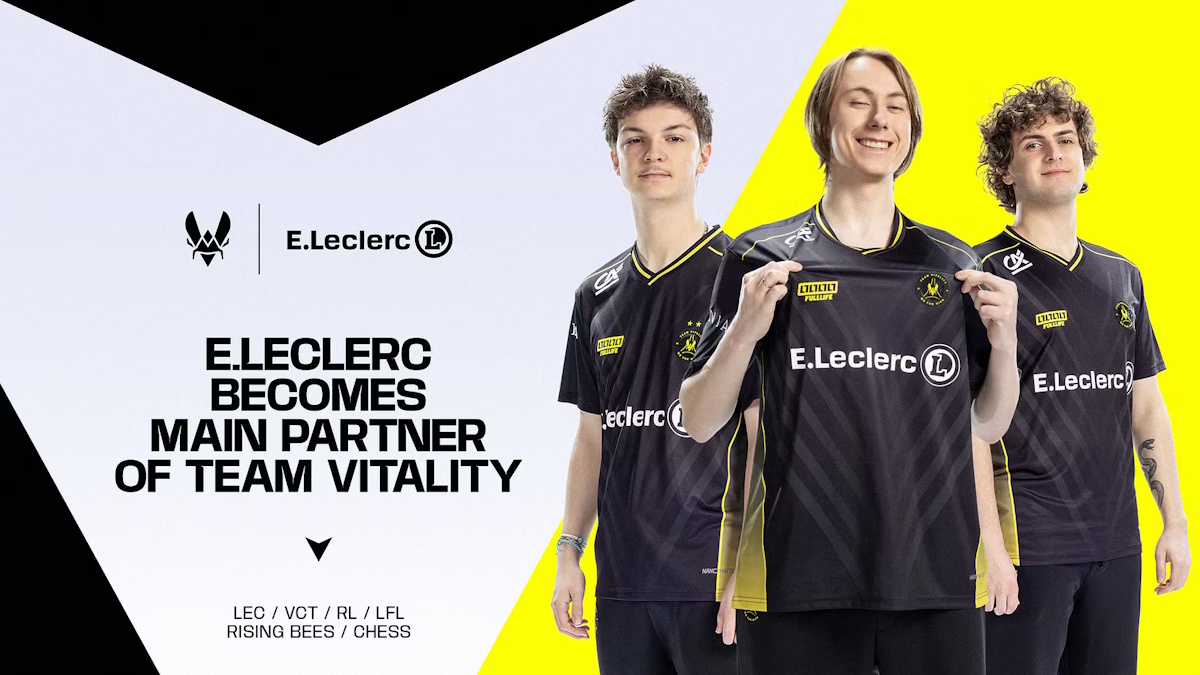eSports
ESIC Publicly Addresses False Narrative That the Commission Works for the Esports Betting Industry

The Esports Integrity Commission has, over the past few years, mistakenly been accused of working for the esports betting industry or being an organisation formed by the betting industry for the betting industry’s purposes. Whilst we have historically tried to address this misconception privately, it has now surfaced again in a way that damages the integrity of esports and the Commission in a way that needs to be publicly addressed.
BACKGROUND CONTEXT OF STATEMENT
First: In Nevada a Bill being sponsored through the State Senate by Senator Ben Kieckhefer, SB 165, seeks to establish an Esports Commission for the regulation of esports related activities in the State. In the sponsoring process, the Judiciary Committee considering SB 165 were told that ESIC, (who has worked with the Nevada Gaming Control Board since 2016 and was a founding member of the Nevada Esports Alliance) was in favour of the Bill. This is false. ESIC opposes SB 165 and has now taken steps to provide explanations to the Committee relating to its position. However, quite apart from certain parties purporting to speak on our behalf without authority, an underlying narrative emerged that: ‘ESIC’s views should be dismissed because the Commission is a servant of the betting industry’.
Second: The same false narrative was put forward to the Entertainment Software Association (“ESA”), the body representing most video game publishers and developers and all of those who publish titles prominently used in esports, by some of its members urging the ESA not to engage with ESIC because ESIC was alleged to “work for the betting industry”.
Third: Disaffected players banned by ESIC for betting related offences and some of their supporters have been reported to be coordinating a broad effort to spread this same false narrative that ESIC works for and serves the betting industry in an attempt to undermine the legitimacy of competitive integrity in esports. This coordinated effort has been reported to ESIC to include rhetoric such as ‘ESIC falsely asserting certain matches are fixed so that the betting operators don’t have to pay out the winning bets on those matches’. This is both an ignorant and damaging narrative not only to ESIC but to the integrity of esports broadly. Such assertions would be entirely antithetical to the purpose and demonstrated work ESIC has undertaken for the sake of competitive integrity in the esports industry for more than five years.
STATEMENT
Despite the differing points of origin and the various malicious motives of those propagating them, all of these narratives need to be addressed and resolved and so ESIC Commissioner, Ian Smith, has considered it prudent to make the following statements:
“ESIC is neither for or against betting on esports. We are not advocates for betting nor crusaders against it.
It is noted, however, that betting on esports is a form of entertainment for most bettors and drives sponsorship revenue and fan engagement for the esports ecosystem. Conversely, the existence of betting opportunities does also raise challenges including, of particular concern to ESIC and central to our mission, the incentive for punters to commit betting fraud by match-fixing. In this respect, our role is to protect the esports industry from that danger.
ESIC exists for the esports industry; primarily for the protection of the players who would be the first and main casualty of any match-fixing scandal (please refer to the detrimental effects that match-fixing has historically had on the competitive Starcraft2 esports scene following the 2015/16 match-fixing scandals in Korea).
When betting fraud is perpetrated, competitive integrity is tarnished (among other negative outcomes). Coincidentally, the legitimate esports betting industry also suffers loss when betting fraud is committed. Therefore, it is of common and synergistic interest to both the esports industry and the betting on esports industry to address the issue of match-fixing through ESIC.
In fact, it is impossible to combat match-fixing without working with the legitimate esports betting industry. Betting data is at the heart of determining whether or not a match might be fixed and betting data is the key evidence in any prosecution of a match fixer. Furthermore, every traditional sport works with the betting industry to combat match-fixing and relies upon such data in a similar manner. This approach is not unique to ESIC.
ESIC is a not for profit members association – we are owned by our members. We have two categories of membership: Our esports members (primarily Tournament Organisers) and our Anti-Corruption Supporters (primarily betting operators, but also government and state gambling regulators, law enforcement, monitoring companies, data providers and industry bodies). From a constitutional point of view, the two do not overlap. Only the Esports Members determine the strategic aims and priorities of ESIC. The Anti-Corruption Supporters participate in our Suspicious and Unusual Betting Alert Network in service of ESIC and our Esports Members. In other words, ESIC works with the betting industry on behalf of the esports industry; we do not work for the betting industry. Accordingly, this dynamic serves only to promote competitive integrity and legitimacy of esports competitions.
Contrary to some assertions, the betting industry does not use us to avoid making legitimate payouts. The primary benefit for betting stakeholders which engage with us is access to what our Suspicious and Unusual Betting Alert Network sees (a network which they also contribute data to).
Importantly, some players are asserting that their betting activity on the game that they play professionally was “innocent”. With respect, that is either naive or disingenuous. No traditional sport allows its professional participants to bet on the sport they play for a living. In the cases ESIC has dealt with, the players against whom we have taken action have bet on the game, league, tournament or match in which they have participated. There is no scenario in which this is acceptable and we will continue to prosecute players who do so where we have jurisdiction. At the highest level of any esports game, the players all know each other, have played with and against each other and have both inside information and the potential to influence each other in a way that gives them an unfair advantage in betting markets and undermines the perception of competitive integrity. In many countries it is also illegal or criminal. Consequently, we are unapologetic about our rule prohibiting betting on the game they play professionally or semi-professionally. This is for the protection of the esports ecosystem and the players in particular. It is not a service to the betting industry but a service to the esports industry broadly in the interest of youth protection, competitive integrity and commercial longevity.”
Conclusion
Individuals attempting to propagate the narrative that ESIC works for the betting industry either have their own adverse agenda or are naïve about the realities of betting and the relationship between esports and betting on esports.
ESIC accepts that the existence of betting in esports is a contentious matter for some people and that they would rather it didn’t exist, but that is not an excuse to ignore the challenges posed by its existence. Any extension of opposition to betting in esports which operates to prohibit or hamper ESIC from effectively engaging with and mitigating the issue of match-fixing through sourcing data from Anti-Corruption Supporters, however, should be entirely discouraged and expelled from the industry. The stark reality is that match-fixing poses a real and demonstrable threat to the youth, competitive integrity, and commercial viability of the esports industry globally. Accordingly, ESIC implores all stakeholders Interested in the common good of esports to work together to combat such threats. Indeed, that includes, of necessity, close cooperation, via ESIC, between the esports ecosystem and the esports betting industry.
NOTE: THIS STATEMENT DOES NOT CONSTITUTE THE INTENDED RELEASE RELATING TO THE AU CS:GO INVESTIGATION. A SEPARATE RELEASE WILL BE MADE RELATING TO THAT INVESTIGATION IN DUE COURSE.
Powered by WPeMatico
Brazilian Carnival
Esportes da Sorte transforms Carnival 2026 into a nationwide immersive experience

Leading Brazilian iGaming company Esportes da Sorte has transformed Carnival 2026 into a nationwide immersive experience, activating urban art installations, hydration stations and large‑scale attractions across nine cities in Brazil. As part of its expanded cultural engagement strategy, the brand is serving as an official sponsor in key Carnival locations and delivering experiential initiatives designed for revelers in the streets and major public spaces.
Esportes da Sorte’s nationwide platform builds on its history of investing in popular culture and public events, moving beyond traditional branding to create meaningful on‑site activations that enhance the urban environment and respond to the unique character of each city’s Carnival celebrations.
In Rio de Janeiro, the company’s efforts focus on the street Carnival experience with hydration points, cool zones and shaded areas in high‑traffic celebration routes. São Paulo’s megabloc circuits feature water trucks, hydration stations and on‑site urban support.
In Recife Antigo, one of Carnival’s cultural centers, Esportes da Sorte installed a standout Ferris wheel at Marco Zero, offering panoramic views of the festivities and historic landscape. Urban transformations like video mapping on iconic buildings and aerial installations along Rua Marquês de Olinda further blend public space with the Carnival experience.
Other cities such as Olinda and Salvador also feature tailored activations, including sensory design, refreshment tunnels and themed artistic displays that align with local traditions and festival dynamics.
In addition to physical structures, the initiative includes a robust communications strategy, sensory activations, public well‑being supports and content campaigns that amplify the carnival‑street experience across digital and traditional media.
According to Germana Casal, Production Coordinator at the Esportes Gaming Brasil Group, the goal is to “be present in a meaningful way at the country’s biggest popular celebration,” respecting each city’s identity and delivering initiatives that improve the Carnival experience for participants.
Esportes da Sorte’s Carnival 2026 project builds on the brand’s presence at more than 100 Carnival parties and street blocos in 2025, reinforcing its leadership role in Brazil’s largest cultural event and deepening its connection with urban celebration culture nationwide.
The post Esportes da Sorte transforms Carnival 2026 into a nationwide immersive experience appeared first on Eastern European Gaming | Global iGaming & Tech Intelligence Hub.
chess esports
Team Vitality announces E.Leclerc as new Main Partner

Team Vitality, one of France’s leading esports organizations, has announced a strategic new partnership with French retail giant E.Leclerc, naming the supermarket chain as the club’s Main Partner for 2026.
Under the agreement, E.Leclerc’s logo will feature prominently on Team Vitality’s international team jerseys, including rosters for League of Legends (LEC and LFL), Valorant (VCT EMEA), Rocket League, Rising Bees and Chess.
Shared Values and Fan Initiatives
The partnership aims to promote accessibility, wellness, and nutrition within the esports community, while bringing gaming culture into E.Leclerc retail spaces through immersive experiences, tournaments and activations designed to engage fans across France.
Team Vitality’s holistic wellbeing program, KARE, which supports performance, nutrition and mental health, aligns closely with E.Leclerc’s focus on responsible lifestyle initiatives. Together, they plan to champion inclusivity, provide unique gaming opportunities, and celebrate esports culture in both digital and physical environments.
With a global audience exceeding 10 million followers, Team Vitality’s influence in competitive gaming makes this partnership a landmark moment for both brands. E.Leclerc’s commitment to youth engagement and cultural connection positions the retailer as a significant non‑endemic supporter of the growing esports ecosystem.
Nicolas Maurer, CEO and Co‑Founder of Team Vitality, described the alliance as a historic milestone that will broaden esports’ reach across everyday life in France and reinforce its cultural legitimacy.
The post Team Vitality announces E.Leclerc as new Main Partner appeared first on Eastern European Gaming | Global iGaming & Tech Intelligence Hub.
AI chatbot esports
G2 Esports and Theta Labs Launch AI Agent Sami

G2 Esports has partnered with Theta Labs to launch “Sami,” a next-generation AI agent designed to enhance fan engagement across multiple competitive esports titles.
The AI-powered assistant will provide G2’s global fanbase with instant access to match schedules, player stats, team rosters, tournament standings, and real-time competitive updates. Sami supports major titles including League of Legends, Counter-Strike 2, VALORANT, Tom Clancy’s Rainbow Six Siege, and Call of Duty.
Accessible via the official G2 website and Discord starting February 17, Sami is built to deliver accurate, always-on responses to fan queries in natural language. From tournament updates to player performance metrics and G2-specific trivia, the AI agent reflects the organization’s unique brand voice and competitive culture.
AI-Powered Fan Engagement at Scale
Sami is trained and deployed using Theta EdgeCloud’s hybrid cloud-edge infrastructure, which integrates over 30,000 distributed edge nodes with cloud services from Google Cloud and Amazon Web Services. The system delivers approximately 80 PetaFLOPS of GPU compute power, enabling real-time processing and analysis at significantly reduced costs compared to traditional centralized cloud platforms.
The AI infrastructure dynamically assigns workloads to high-performance GPUs, including NVIDIA A100 and H100 cloud GPUs, as well as RTX 3090 and 4090 desktop GPUs, optimizing performance and cost efficiency. This decentralized architecture allows G2 to scale fan engagement globally while maintaining low latency and high reliability.
Strengthening Esports AI Innovation
Theta Labs has rapidly expanded its presence in the esports industry, powering AI-driven fan experiences for organizations such as Cloud9, FlyQuest, Evil Geniuses, NRG, Gen.G, Dignitas, 100 Thieves, Method, and Team Heretics.
According to Mitch Liu, CEO of Theta Labs, esports fans increasingly demand instant access to team data and competitive updates. AI agents like Sami enable organizations to provide 24/7 automated engagement while maintaining a unique community personality.
Sabrina Ratih, COO of G2 Esports, emphasized that Sami is more than a standard chatbot. Built to reflect G2’s playful and competitive tone, the AI assistant combines advanced machine learning with brand-driven communication to deliver both entertainment and functionality.
The Future of AI in Esports
The launch of Sami positions G2 Esports at the forefront of AI-driven fan engagement in competitive gaming. By leveraging decentralized GPU infrastructure and blockchain-powered cloud computing, the partnership with Theta Labs signals a broader industry shift toward scalable, cost-efficient AI solutions for esports organizations.
As AI integration becomes a competitive differentiator in esports, solutions like Sami are expected to redefine how teams interact with their global communities in real time.
The post G2 Esports and Theta Labs Launch AI Agent Sami appeared first on Eastern European Gaming | Global iGaming & Tech Intelligence Hub.
-

 ACMA6 days ago
ACMA6 days agoACMA Blocks More Illegal Online Gambling Websites
-

 CEO of GGBET UA Serhii Mishchenko6 days ago
CEO of GGBET UA Serhii Mishchenko6 days agoGGBET UA kicks off the “Keep it GG” promotional campaign
-

 Aurimas Šilys6 days ago
Aurimas Šilys6 days agoREEVO Partners with Betsson Lithuania
-

 Canada5 days ago
Canada5 days agoRivalry Corp. Announces Significant Reduction in Operations and Evaluation of Strategic Alternatives
-

 Latest News5 days ago
Latest News5 days agoTRUEiGTECH Unveils Enterprise-Grade Prediction Market Platform for Operators
-

 Central Europe6 days ago
Central Europe6 days agoNOVOMATIC Once Again Recognised as an “Austrian Leading Company”
-

 Acquisitions/Merger5 days ago
Acquisitions/Merger5 days agoBoonuspart Acquires Kasiino-boonus to Strengthen its Position in the Estonian iGaming Market
-

 Firecracker Frenzy™ Money Toad™5 days ago
Firecracker Frenzy™ Money Toad™5 days agoAncient fortune explodes to life in Greentube’s Firecracker Frenzy™: Money Toad™



















